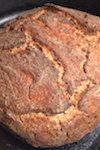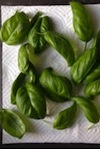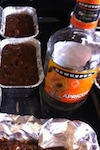 For a long time, I did not love poetry.
For a long time, I did not love poetry.
I read poetry. I memorized poetry to get me through a job that left me weary from boredom. I tried to understand poetry. But I didn't love it.
I loved words. Any words. Words in books, words in songs, words on the shampoo bottle. I loved stories — long ones, short ones, fat ones, skinny ones. I loved metaphors. I even loved select poems. But I did not love poetry.

































